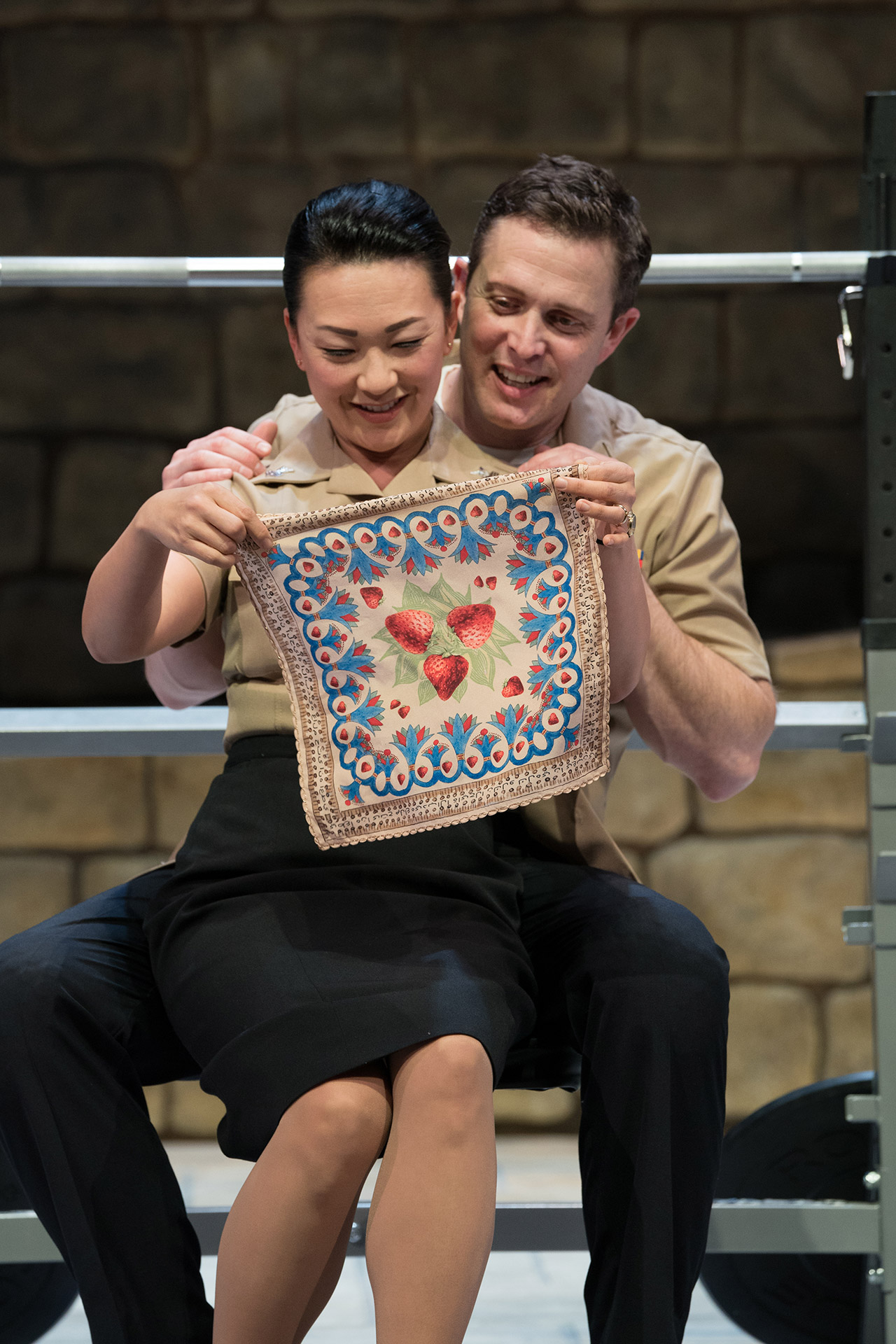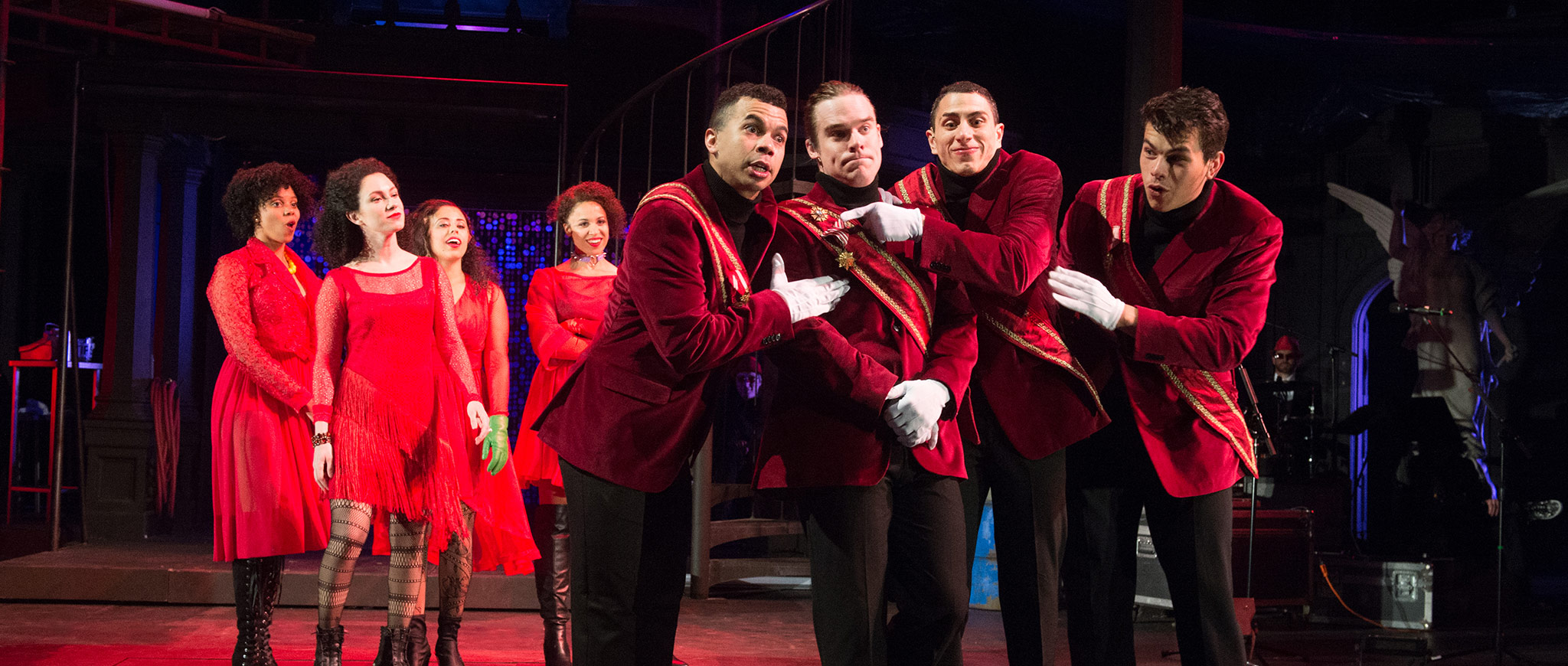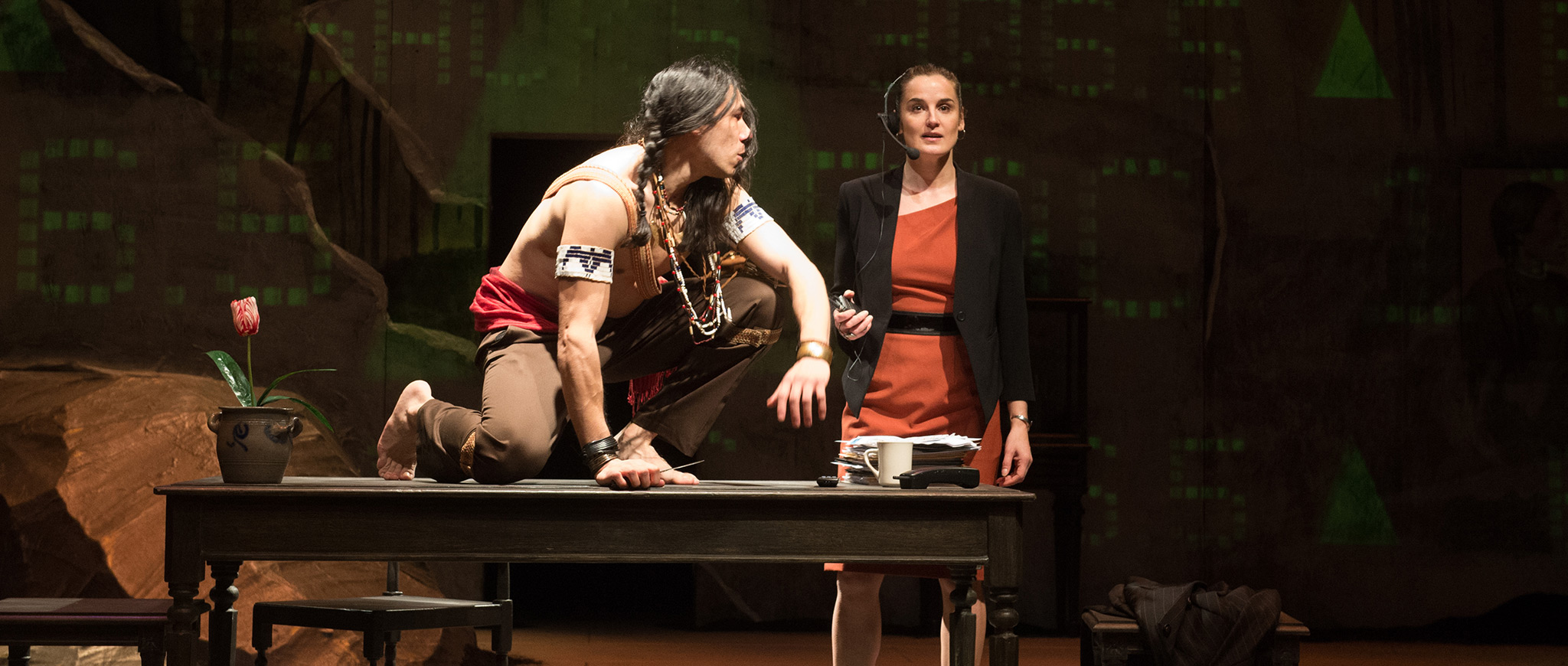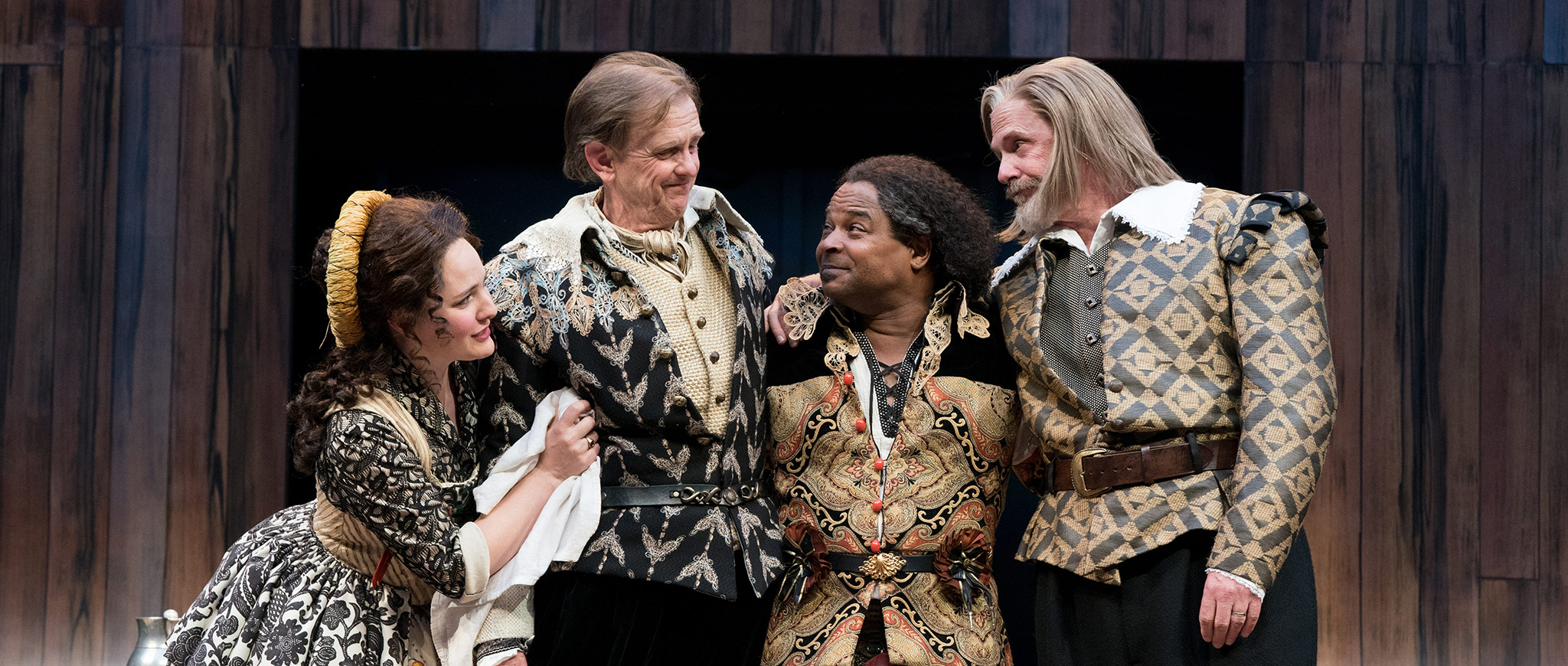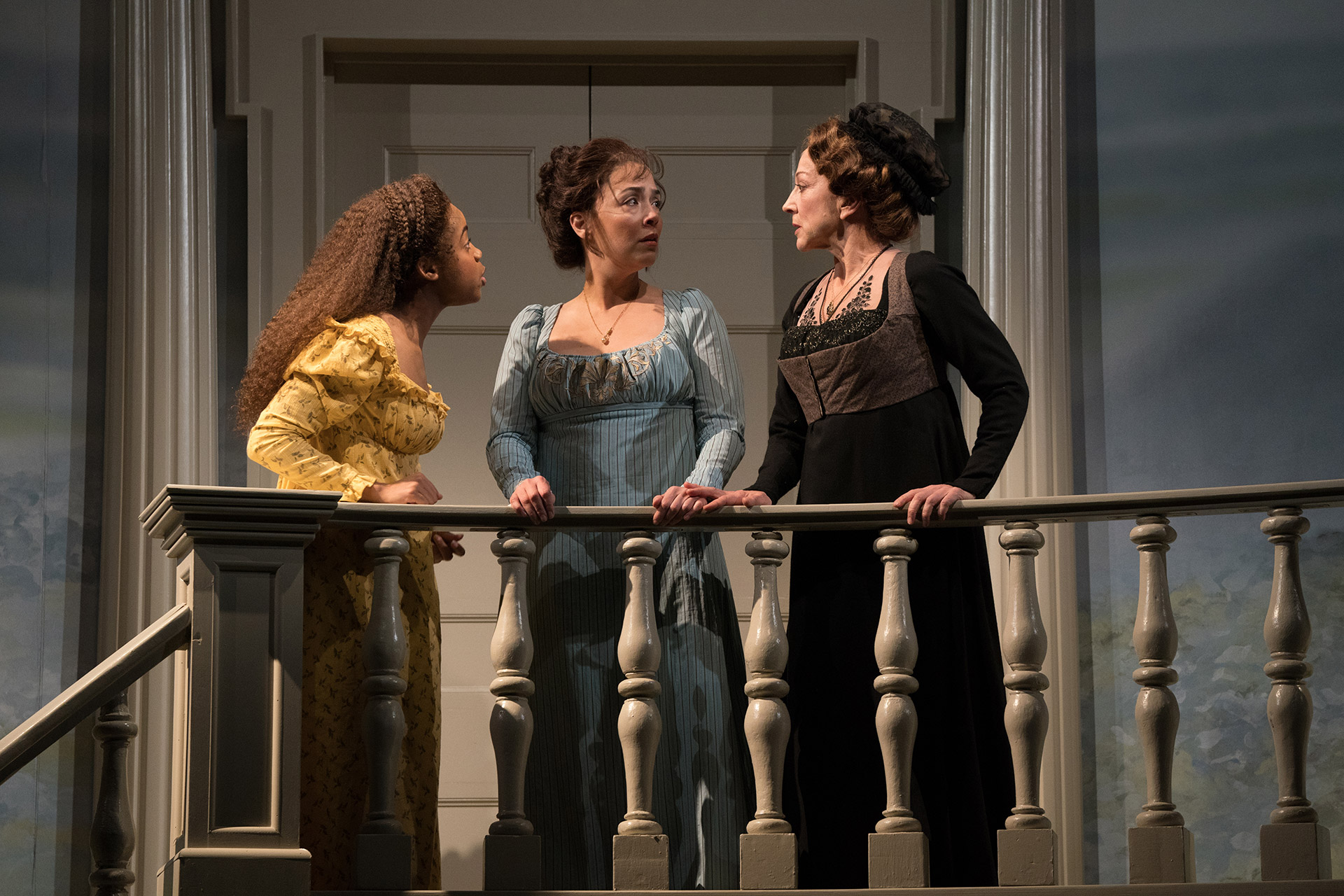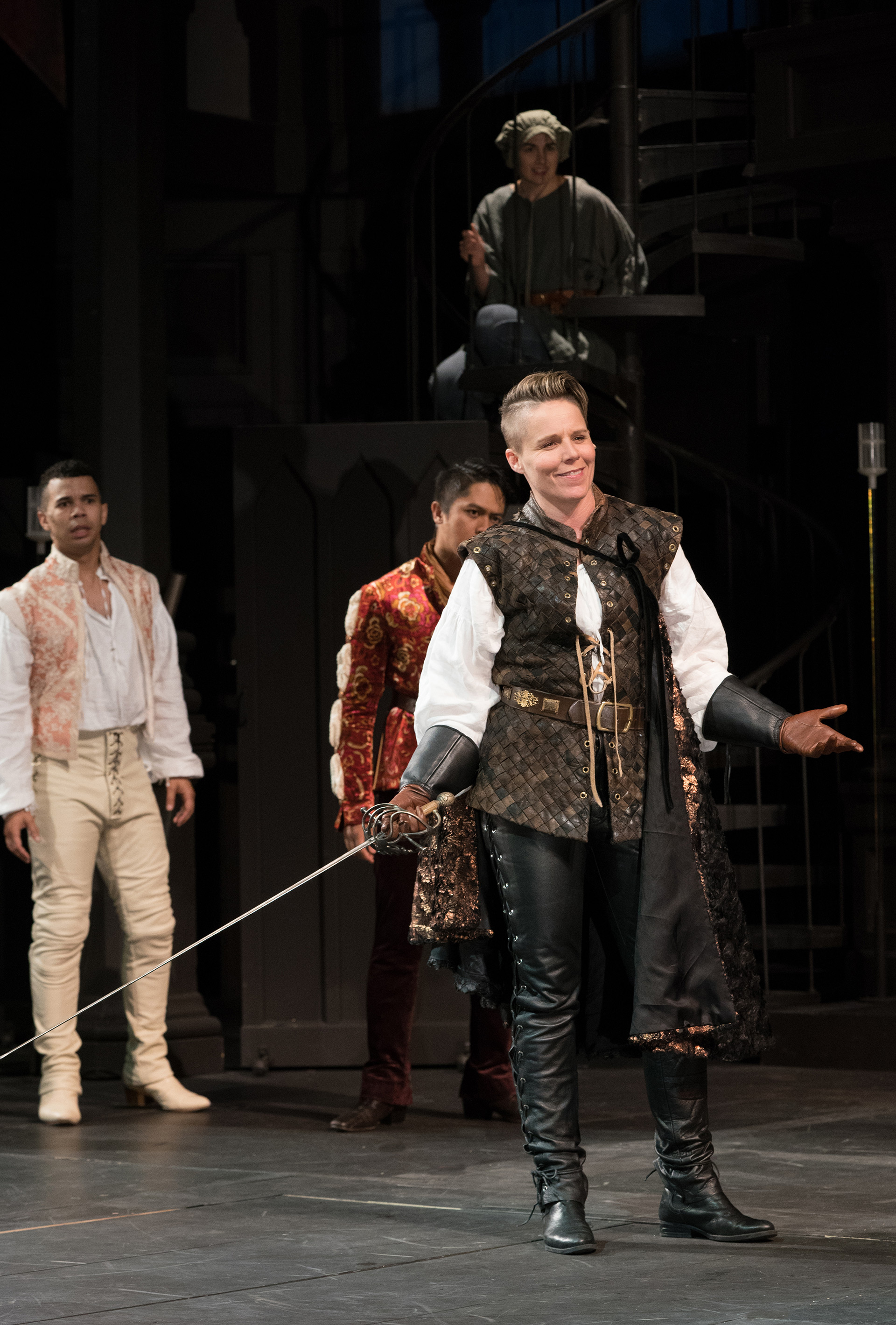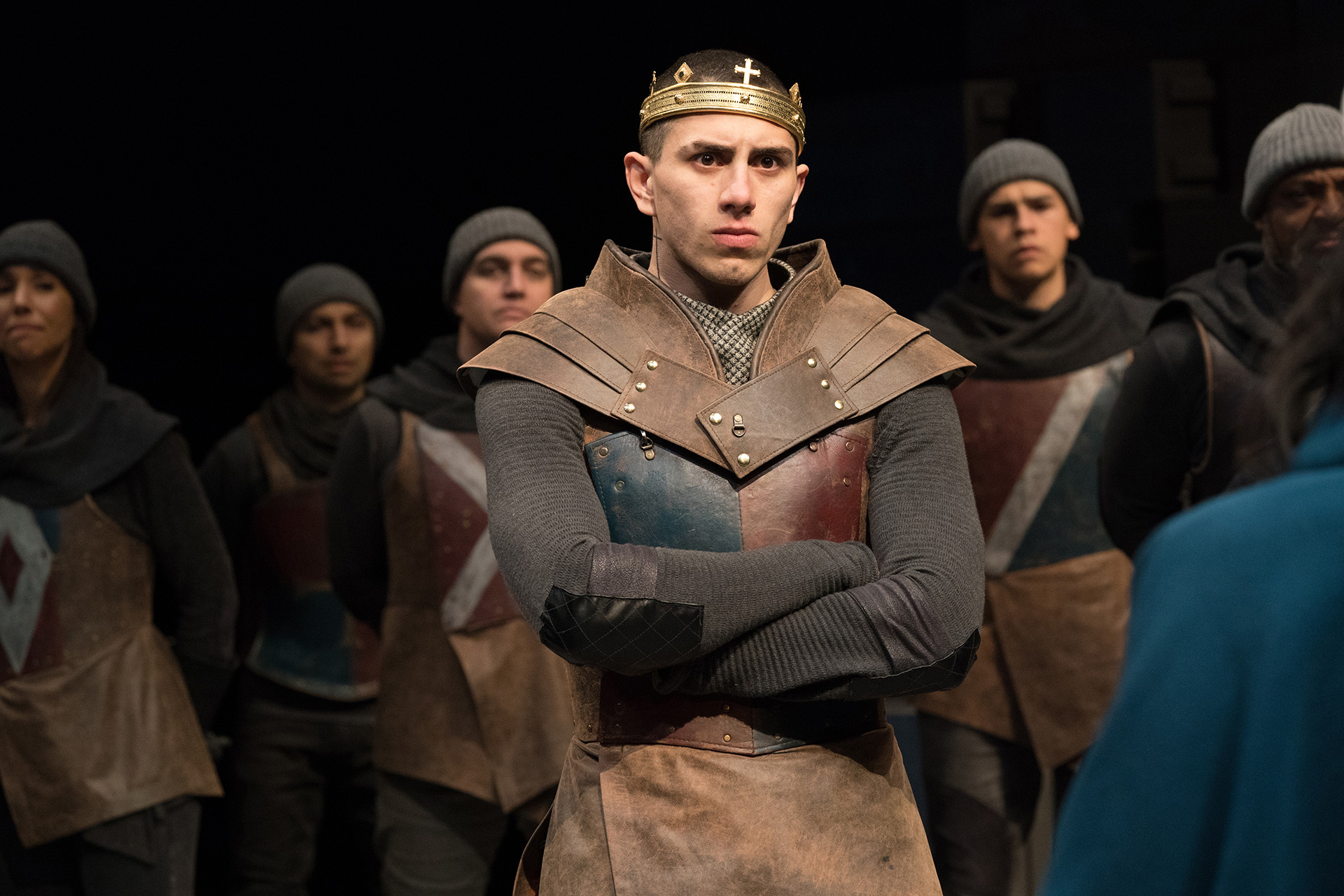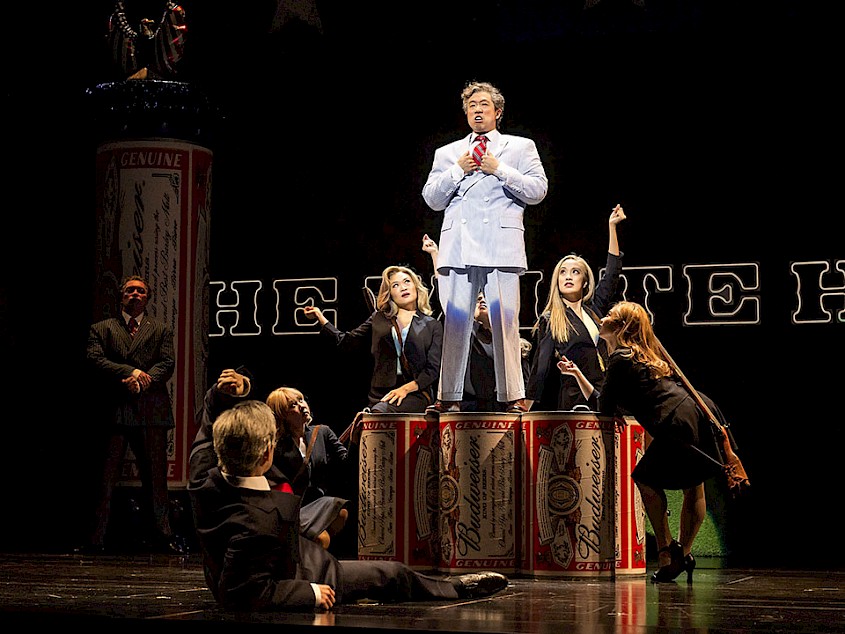 | |
| Custom Made production photo by Jay Yamada |
I was motivated to see Good. Better. Best. Bested. (a co-production of Custom Made Theatre and Just Theater) because it was written by Jonathan Spector, who wrote the excellent Eureka Day that we saw recently at Aurora. So I thought I'd check this out, too. It's kind of a weirdly abstract play, but it does some interesting things very well.
The Play
Set in Las Vegas, GBBB (as I'll call it for brevity) explores the reaction of a potpourri of people to an unspecified, horrific disaster. Everyone in the cast portrays a variety of characters, with none being particularly featured. So it's essentially an ensemble piece with a lot of interwoven storylines. We see a number of different characters, including a bunch of different tourists (of course--it's Vegas), but also a number of locals, including street buskers, an escort, a lounge magician, and so on.It takes a while to kind of figure out what's going on, as the start seems like a sort of random assortment of vignettes, but eventually we start to see the patterns and interconnections between the characters, and pretty soon everyone is reacting to something awful that has happened, somewhere else. As the news starts to sink in, characters sometimes pull together, but some also lash out and kind of randomly hurt others.
It's ultimately a pretty striking investigation of how trauma reveals character, bringing out both the best and worst in people. I found the use of the non-specific disaster (maybe a terrorist attack, maybe a military strike) to be very effective, both because it allows Spector to explore how people react to the unknown and sudden, and because it doesn't tie that reaction to any particular place or people. That's all kind of magnified by setting the piece in Las Vegas, because there everyone is somewhat detached from home, family, and reality.
There's a lot going on, but ultimately it's a pretty thoughtful and thought-provoking play that stuck with me for a while.
The Production
Like all shows at Custom Made, this one has kind of a low-budget feeling, but that suits my impression of Las Vegas, anyway. The cast all get to show off a bit of versatility. Mick Mize gets to open the show as a sparkly magician, but his predictions don't seem to have tied in to the subsequent action, or maybe I just didn't remember. Jessica Lea Risco gets to be a worldly escort who really gets thrown by the upheaval, bring us into her personal life (much to the chagrin of the tourist who hired her). David Sinaiko really gets shafted, not only being abused by tourists while performing as a human statue, but also having his shoes stolen and encountering broken glass. I think all the male actors eventually end up in the Spiderman suit.The cast does a good job of pulling a plot out of the assemblage of little bits, without a great deal of support from the design and direction. I suspect that a different crew could refine the message a bit and make something more of it. But here it's largely left to the actors, and they do a credible job.
Bottom Line
So out of the chaos comes some meaning. It's definitely not as polished as, say, Eureka Day, but Spector definitely has something to say here. I'd like to see a company with more resources have a go at this play.But as often happens, I caught this on one of the final performances of the run, so you'll have to wait for it to show up somewhere else to see what you think.

